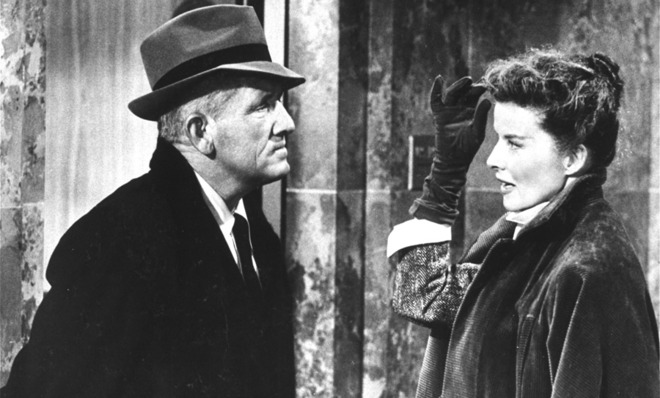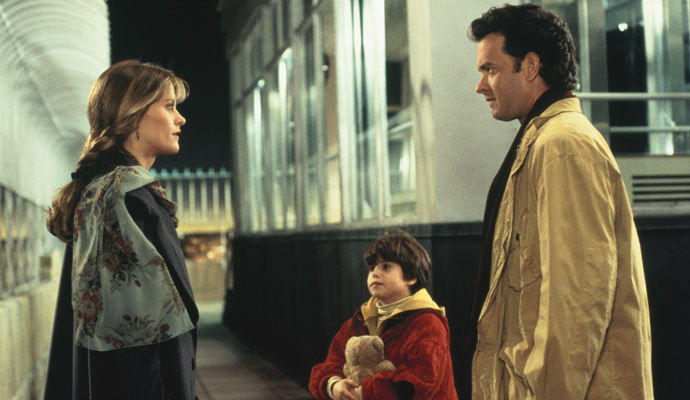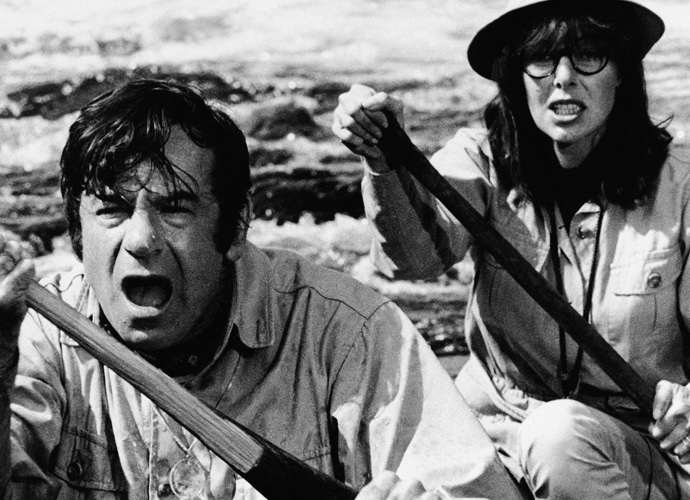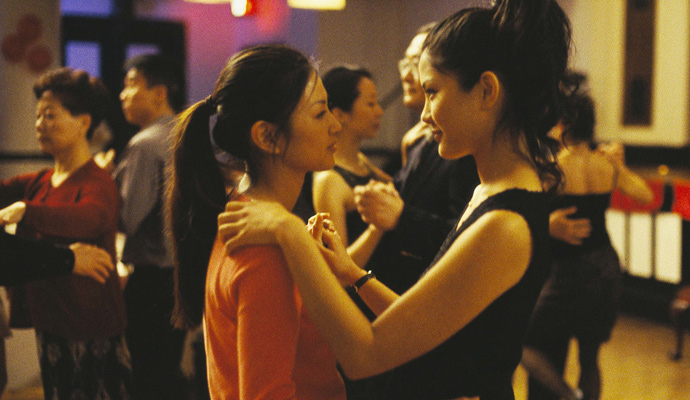Girls on Film: 9 forgotten rom-coms worth watching this Valentine's Day
A trip through cinematic history reminds us that there's more to the genre than Love Actually


A free daily email with the biggest news stories of the day – and the best features from TheWeek.com
You are now subscribed
Your newsletter sign-up was successful
The romantic comedy is, without a doubt, the most maligned genre in cinema. What should be a simple categorization for a film that has both romantic and comedic elements became a catch-all term that has evoked argument and derision. Things only got worse when onetime moneymakers like Reese Witherspoon started failing at the box office in 2012, and genre vets like Nancy Meyers struggled to sell their romantic ideas, which led The Hollywood Reporter to go all in and proclaim the romantic comedy dead. Vulture followed up by asking if the genre could be saved, and ever since, we've had a never-ending sea of arguments about the state of the rom-com.
Many detractors use the worst offenders to define the whole (The Ugly Truth, Valentine's Day), while many of the best films are stripped of the "rom" in an effort to avoid the rom-com stigma. Films like Moonrise Kingdom and Warm Bodies sneak by with their romantic cores masked by other elements, and even the traditional meet-cute romance Enough Said has been differentiated from the genre it beautifully embraces.
But the romantic comedy is so much more than He's Just Not That Into You, as well as the mountains of listicles that champion the usual "classics" like When Harry Met Sally, Sleepless in Seattle, and Love Actually. History — not surprisingly — offers the best lesson.
The Week
Escape your echo chamber. Get the facts behind the news, plus analysis from multiple perspectives.

Sign up for The Week's Free Newsletters
From our morning news briefing to a weekly Good News Newsletter, get the best of The Week delivered directly to your inbox.
From our morning news briefing to a weekly Good News Newsletter, get the best of The Week delivered directly to your inbox.

We have a good hundred years of cinematic romance to go with — a much larger pot of gold than the usual Top Tens would have you believe. They're not all perfect — is any film? — but as NPR's Linda Holmes wrote last year, "Greatness in romantic comedy has always been about what happens when the leads (and sometimes the supporting characters) interact with each other within that story."
When I felt rom-com malaise, I was reinvigorated by searching beyond the usual chatter to uncover forgotten gems. What I found (and continue to find, because there are a ton of possibilities out there) are a surprising number of films that defy expectations — and despite being decades older, are often more forward-thinking than today's fare.
What follows below isn't a "best list." It's a "forgotten list": films that never (or only sometimes) get bandied about when we talk about romantic comedies. Hollywood may be failing us when it comes to love, but there are decades of films that make up for it — films featuring excellent, nuanced women who are more than clay for men to mold into perfect paramours. Sometimes, believe it or not, they're even written and directed by women. Let this be your first step into a world that's older and often more progressive:
1. I Love You Again, 1940
A free daily email with the biggest news stories of the day – and the best features from TheWeek.com
Before Hepburn ever met Tracy, William Powell and Myrna Loy set the standard for chemistry with The Thin Man. Their charisma was so potent that it even overshadowed a murder scripted by Dashiell Hammett. But few remember that the pair worked together outside of Nick and Nora. I Love You Again sees Powell headed straight for the bar once more — but this time he's a teetotaler who gets a concussion, and wakes up to realize he's actually a con man coming out of a long case of amnesia. At first, he tries to fit into his old life to steal the thousands of dollars his stingy alter-ego had access to, but ultimately he learns to find a middle ground, where he regains the love of his alter-ego's estranged wife.
2. A New Leaf, 1971

One of the most undervalued and underutilized talents in Hollywood is Elaine May, the comedian who rose to fame for her influential stand-up routine with Mike Nichols. Like her old partner, she moved from comedy to filmmaking, which was sadly cut short with the notorious cine-disaster Ishtar in 1987. Before that, however, she wrote, directed, and starred in the cleverly beautiful A New Leaf. Walter Matthau stars as a rich, lazy fool who carelessly wastes his fortune, and then hunts for a wife to keep him in the luxury he's used to. The woman he finds is a mess of an heiress played by May. That May could take a despicable character and find a way to make us root for him is a big testament to her talent.
3. Cousins, 1989
Even the most stereotyped directors have some surprises hiding in their filmographies. Before Joel Schumacher became infamous for his batsuits with perky nipples, the director helmed Cousins — a romantic comedy that sees Ted Danson fall in love with none other than Isabella Rossellini. The pair have unexpected chemistry as a star-crossed pair who begin to fall in love after they discover that their respective partners have slept with each other. Structured around a series of weddings and a funeral, it's also a great alternative to Four Weddings and a Funeral.
(See also: Cousin, Cousine — the Oscar-nominated original French film the movie was based on, available on Hulu as part of the Criterion Collection.)
4. Splendor, 1999
Girl meets boy; girl meets another boy; girl can't decide between them, so they all become partners. This is the basic set-up for director Gregg Araki's jolting jump out of apocalyptic darkness and into bubblegum-flavored romance. Araki was inspired by Cary Grant and screwball comedy; Splendor is, essentially, a racier version of the 1933 comedy Design for Living. Rather than make a statement, the film relishes in simplicity, choosing to delight in romance and a certain otherworldliness that plays on the plastic sheen often given to romantic films.
5. Same Time Next Year, 1978
What romances almost always fail to relay is the passage of time. Same Time, Next Year strives to rectify that, exploring one pair's extra-marital affair over 26 years. Though the '70s look permeates the film a little too thoroughly, Ellen Burstyn and Alan Alda bring the material to life as they explore how the changes in the world also change us in ways we can't foresee. In some ways, it's a precursor to Richard Linklater's Before series, showing how time can both strengthen and sever bonds.
6. Saving Face, 2004

In the mainstream rom-com world, Michelle Krusiec is the supporting player behind the likes of Cameron Diaz (What Happens in Vegas) and Reese Witherspoon (Sweet Home Alabama). In 2004, however, she got the chance to lead her own romantic comedy with the delightful Saving Face. Written and directed by Alice Wu, the film is about a gay woman (Krusiec) struggling with work, love, and strict familial expectations while her mother (Joan Chen) — a widow who conceived out of wedlock — does the same. Don't be fooled by the DVD's rather hetero-obsessed plot summary, which tries to downplay the lesbian love story at the film's heart.
7. Starting Over, 1979
Not every Oscar-nominated film stays in our memory banks. One that has all but slipped from memory is James L. Brooks' Starting Over. A non-mustachioed Burt Reynolds is caught between his ex-wife (Candice Bergen) and his new girlfriend (Jill Clayburgh). The rom-com is an exercise in wrong moves, delighting in its hero's absolute cluelessness when it comes to women, while exploring the emotional intricacies of moving on. The film is also absolutely riddled with recognizable faces, including Kevin Bacon and Wallace Shawn.
8. Desk Set, 1957
For a pair as formidable as Katharine Hepburn and Spencer Tracy, it's easy to focus on the best and overlook the merely "great." Desk Set wasn't one of their big hits, but it was a precursor for the next generation: Phoebe and Henry Ephron, Nora Ephron's parents, adapted it for the screen. The film is both wildly from another time and also timeless, as Hepburn's Bunny plays a network researcher that Tracy's Richard plans to replace with a computer. They are both smart and capable people who learn to teach each other while staying true to themselves.
9. Love Jones, 1997
Forgive me one small diversion, which sacrifices some laughs for drama, but this is a generally overlooked film infinitely more worthwhile than the recent hit Think Like a Man, which shows up on too many Best lists while Love Jones shows up on too few.
Larenz Tate and Nia Long play new lovers who bond over their interests in art, and attempt to figure out their attraction to each other. The film was set in contrast to grittier films like Boyz in the Hood and Menace II Society, showcasing leads who interact with each other rather than the system. The triumph of Love Jones, however, is bittersweet. Though debut director Theodore Witcher planned a long film career, it ended as quickly as it began because, as he told The Root in 2012, "There has to be something that you want to do that a studio wants to pay for. I was never able to sync that up. I wanted to do ambitious films with more black people. You don't get to do that."
Girls on Film is a weekly column focusing on women and cinema. It can be found at TheWeek.com every Friday morning. And be sure to follow the Girls on Film Twitter feed for additional femme-con.
Monika Bartyzel is a freelance writer and creator of Girls on Film, a weekly look at femme-centric film news and concerns, now appearing at TheWeek.com. Her work has been published on sites including The Atlantic, Movies.com, Moviefone, Collider, and the now-defunct Cinematical, where she was a lead writer and assignment editor.
-
 Antonia Romeo and Whitehall’s women problem
Antonia Romeo and Whitehall’s women problemThe Explainer Before her appointment as cabinet secretary, commentators said hostile briefings and vetting concerns were evidence of ‘sexist, misogynistic culture’ in No. 10
-
 Local elections 2026: where are they and who is expected to win?
Local elections 2026: where are they and who is expected to win?The Explainer Labour is braced for heavy losses and U-turn on postponing some council elections hasn’t helped the party’s prospects
-
 6 of the world’s most accessible destinations
6 of the world’s most accessible destinationsThe Week Recommends Experience all of Berlin, Singapore and Sydney
